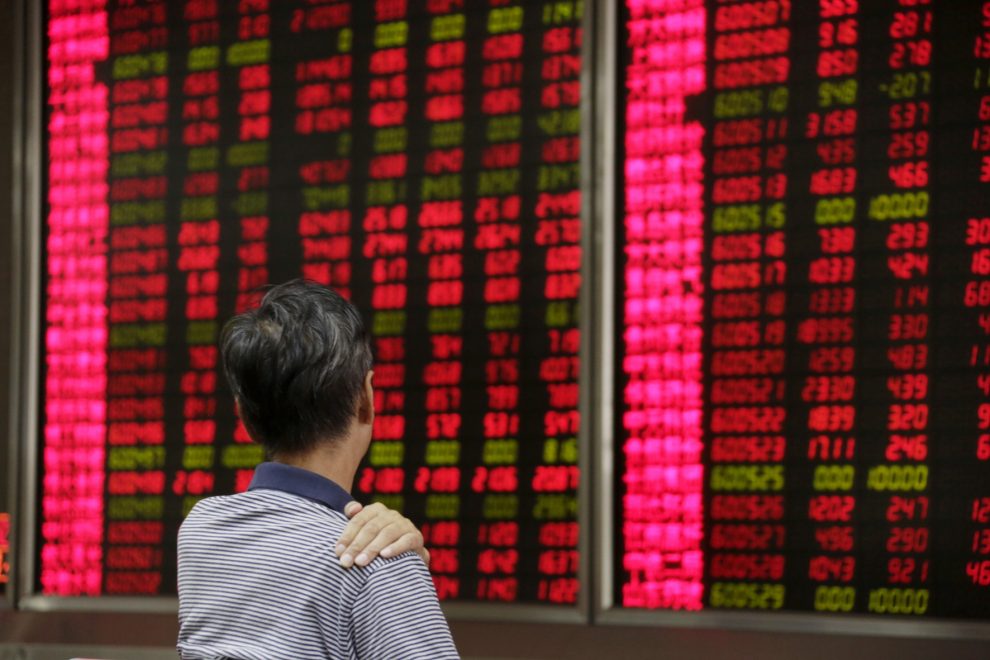Asian markets had a mixed day on Thursday, with shares down in China and weak and uneven in other regional exchanges.
MSCI’s broadest index of Asia-Pacific shares outside Japan dropped 0.65%, and US stock futures the S&P 500 e-minis, shed 0.15%.
Japan’s Nikkei inched up in choppy trade, lifted by transport shares and Wall Street’s overnight moves, but gains were capped as market participants stayed away from making big bets ahead of the US Federal Reserve’s Jackson Hole symposium this week.
The Nikkei share average edged up 0.06% to close at 27,742.29, after swinging up 0.37% and down 0.14%. The broader Topix edged down 0.02% to 1,935.35.
“The Nikkei gained earlier because the US market was strong overnight, but there was no market-moving catalyst that could lift the market further,” Takatoshi Itoshima, a strategist at Pictet Asset Management, said.
“Investors are also cautious as they await the outcome of the Jackson Hole symposium. Also, they are eyeing the upcoming election of Japan’s ruling party.”
Meanwhile, Chinese bluechips fell 2% and Hong Kong ended down 1%, as a tech rally ran out of steam. The Hang Seng Tech Index, where many of the big Chinese tech firms are listed, fell 1.9%.
Evergrande’s profit warning sent its shares down 7% and the shares of its electric vehicle unit tumbling nearly 20%.
Elsewhere, the Australian benchmark lost 0.5% as the country’s new daily coronavirus cases topped 1,000 for the first time. Japan’s Nikkei ended little changed as the government kept its economic forecasts broadly unchanged.
“The easiest piece to write in global economics right now is the Covid tortoises and hares,” Societe Generale’s Kit Juckes said. “The zero Covid countries had a cracking start but now it is the others that are leading,” he said, pointing to how restaurant and airline bookings in Europe had been steadily improving whereas places like Australia were tough.
In South Korea, stocks fell on Thursday after the Bank of Korea (BOK) raised policy rates, making it the first major Asian central bank to move away from pandemic-era monetary easing.
Most other equity markets in the region were flat or down, as investors braced for a more hawkish stance from central banks around the world following the BOK’s move to raise interest rates.
The Philippine peso and the South Korean won weakened while other regional currencies were subdued, even as the dollar held near a one-week low.
South Korea’s stock benchmark snapped a three-day rally, and the won weakened 0.5% against the dollar.
The Bank of Korea raised its policy rate for the first time in almost three years, even as the country reported the highest daily count of Covid-19 deaths for 2021. This raised concerns over further rate hikes from the BOK, and of other central banks following suit, even as the Covid-19 caseload in the region has surged over the past few weeks.
In Indonesia, the stock benchmark fell 1%, after the country said its budget deficit was 2.04% of the GDP between January and July this year.
In Malaysia, the stock benchmark extended gains to a fifth session, and the ringgit was at its strongest in over a month. Analysts at Maybank attributed this to uncertainties over domestic politics finally fading, as new prime minister Ismail Sabri Yaakob took charge last Saturday after the previous government collapsed due to infighting.
HIGHLIGHTS
Indonesian 3-year benchmark yields are down 5.5 basis points at 4.724%
Malaysia’s 10-year benchmark yield is up 0.8 basis points at 3.25%
Singapore’s 10-year benchmark yield is up 4.2 basis points at 1.443%
• Reuters and Jim Pollard
























